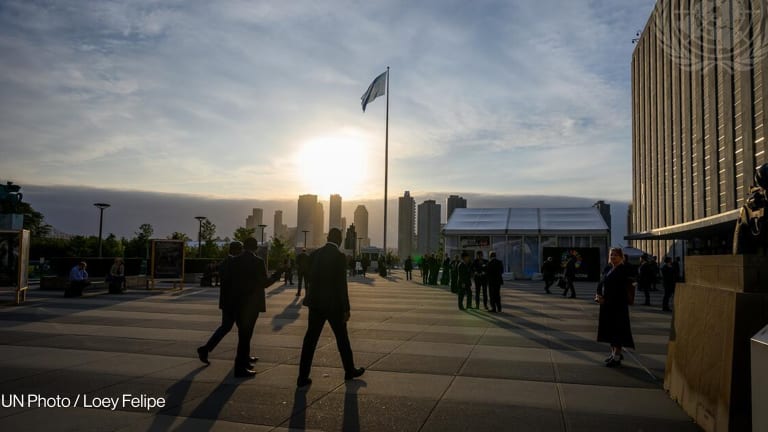A slow drip of climate commitments
By Jesse Chase-Lubitz, 4:20 p.m. ET
Over 100 world leaders gathered at the United Nations to give viewers a sneak peek into their new climate commitments for the next five years. That might sound exciting, but these goals were due in February, so the announcements today were long overdue.
Printing articles to share with others is a breach of our terms and conditions and copyright policy. Please use the sharing options on the left side of the article. Devex Pro members may share up to 10 articles per month using the Pro share tool ( ).








